Doctoral candidates
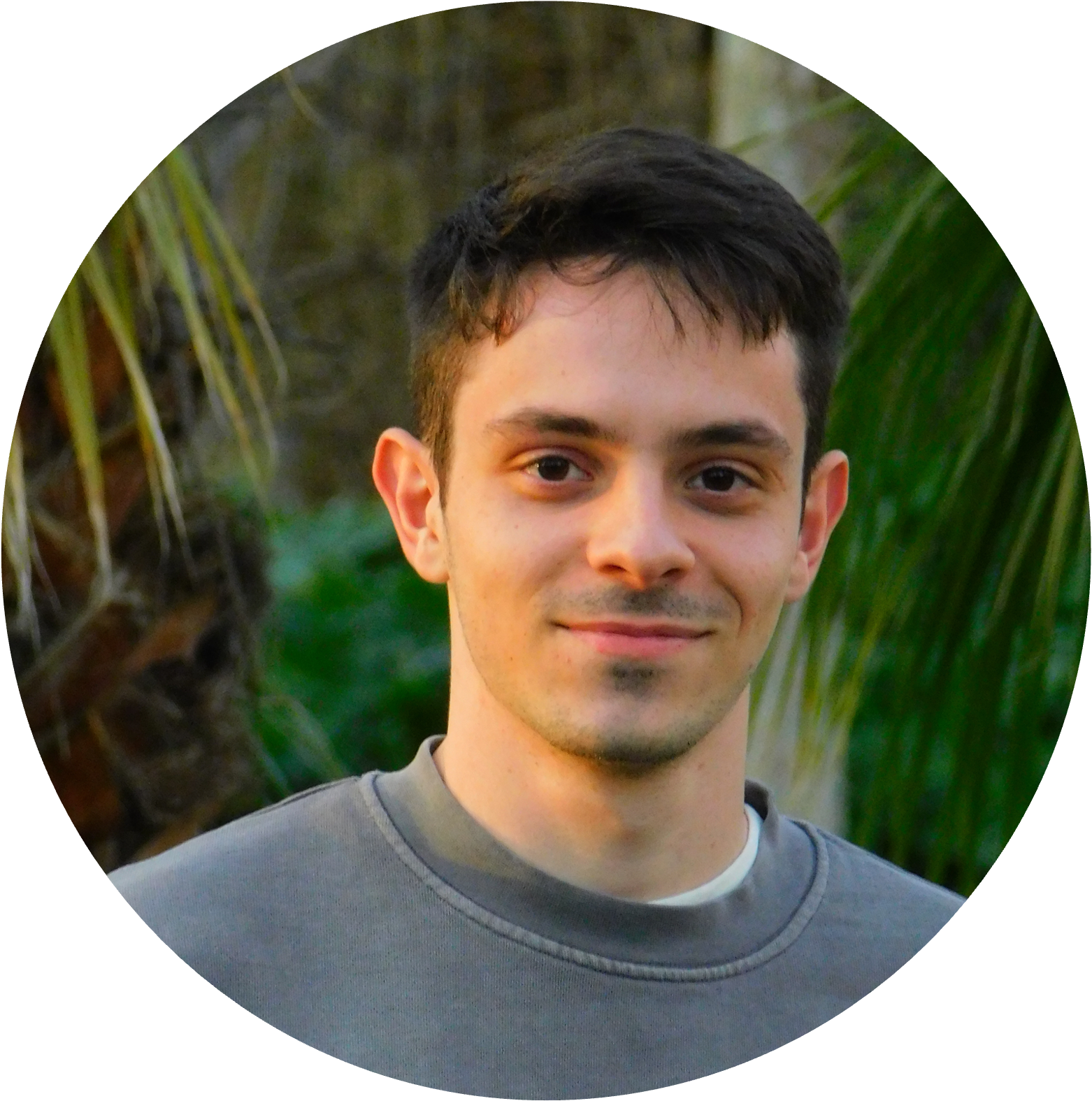
DC1 FRANCISCO javier Suárez López
Host institution: GENAR, Italy
Project title: Innovative genomic technologies for the advanced characterization of myotonic dystrophy mutations (WP1)
Research interests and background:
Francisco Javier holds a Bachelor's degree in Biology (2024) from the University of Granada (Spain), where he began his research on the genomics of complex diseases from a bioinformatics perspective. This experience increased his passion for this field and its applications to genetics. His thesis focused on developing an open-source tool designed to homogenize genomic data, facilitating various downstream analyses and supporting other researchers in their investigations, as part of his commitment to open science. After that, Francisco Javier completed a Master's in Genetics and Evolution (2025) at the same university. During his thesis, he carried out the implementation of several machine learning algorithms, which allow the integration of previously generated data, aiming to explore their potential for non-invasive clinical predictive applications. He also participated in scientific dissemination projects, driven by a strong commitment to making scientific knowledge accessible to the general public.
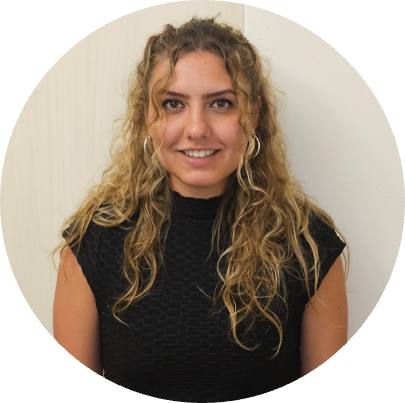
DC2 vanja Obadović
Host institution: UTOV, Italy
Project title: The complexity of DM repeat expansions: new challenges in developing personalized molecular therapeutics (WP1)
Research interests and background:
I hold a Master’s degree in Human Molecular Biology from the University of Belgrade. At the Center for Human Molecular Genetics, I’ve worked on the diagnostics of myotonic dystrophy and other repeat expansion disorders, which has shaped my interest in the molecular mechanisms behind these conditions. Joining the ENTRY-DM project offers an opportunity to bridge my clinical experience with research aimed at uncovering the biological complexity of myotonic dystrophy and exploring new therapeutic approaches. Beyond the lab, I’ve also been involved in awareness-raising initiatives, such as DM Awareness Day, where meeting people living with the disease has further fueled my drive to contribute to impactful research that connects with real patient needs.
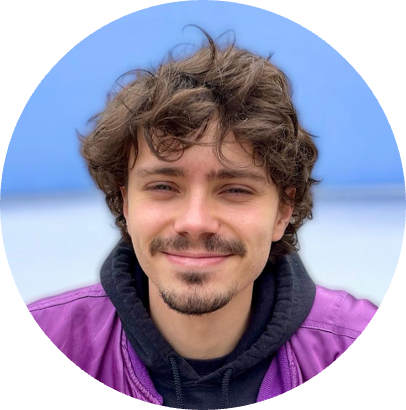
DC3 timothée Caboche
Host institution: IBEC, Spain
Project title: A new integrated in vitro platform to study DM muscle disease (WP1)
Research interests and background:
I have a degree in Information Technology for Health, combined with a master's degree in Microelectronic Systems. During my studies, I developed a love for science and research across all the fields I encountered.
Before joining the ENTRY-DM network, my final thesis topic was ‘In vitro electromyography to monitor myotonia using 3D skeletal muscle tissue derived from cells of patients with myotonic dystrophy type 1’. This experience made me want to become more involved in research into these diseases. That is why I chose this topic carefully, for its multidisciplinary context and medical implications.
In addition to science, I have spent most of my life working with children during holiday camps as a leader and director, which has helped me grow enormously. I also enjoy reading, video editing, listening to music and cooking. So I am really excited to start working with the whole network to move things forward!

DC4 MOUBANI DAS
Host institution: CECS, France
Project title: Advanced human 3D neuromuscular and cortical models for mechanistic and therapeutic research (WP1)
Research interests and background:
My research journey has been driven by curiosity about how molecular and cellular mechanisms govern development and disease. I hold a Masters in Molecular Medicine from Uppsala University and an M.Sc. in Zoology with a specialization in Cytogenetics and Molecular Biology from the University of Calcutta. Through research experiences at Cornell University, Lund Stem Cell Center, Uppsala University, and the Max-Delbrück-Centrum für Molekulare Medizin, I have developed interdisciplinary expertise across the domains of embryonic development, neural regeneration, and neuro-oncology with technical strength in 3D culture systems, neuronal reprogramming, organoids, optogenetics, genetic engineering, and phenotypic drug screening.
My recent work involved generating optogenetically active interneurons from human glial cells and studying their maturation in organotypic brain slice cultures. In addition, I conducted high-throughput phenotypic drug screening and explored drug mechanisms of action using glioblastoma–microglia co-culture models genetically engineered with synthetic locus control region reporters. My interest in Myotonic Dystrophy (DM) stems from its complex, multi-systemic pathology and the unmet need for effective therapies. I am particularly motivated by the promise of patient-derived hiPSC-based organoids to model disease mechanisms and evaluate RNA-targeted treatments, including antisense oligonucleotides. I am eager to contribute to the development of advanced 3D neuromuscular and cortical models to better understand DM and related neurogenetic conditions.
Beyond research, I am committed to science communication and enjoy expressing creativity through Indian classical dance, nature exploration, and writing poetry and fiction.
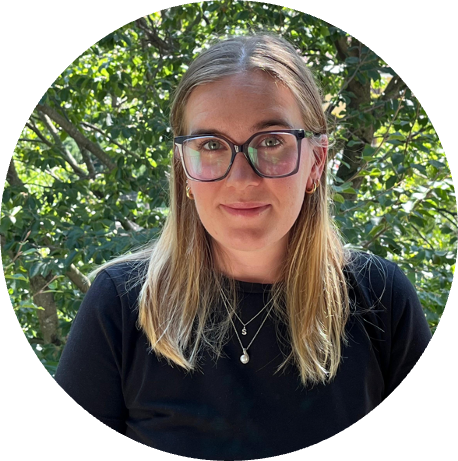
DC5 sofia Gaspari
Host institution: RUMC, Netherlands
Project title: Structure and dynamics of nuclear RNA foci in myotonic dystrophy type 1 and 2 (WP1)
Research interests and background:
I am a Cellular and Molecular Biotechnology graduate, with a background in molecular biology, neurobiology and study of muscular dystrophies. My main research interest lies in the analysis of conditions of muscle waste, and in the understanding of the mechanisms underlying dystrophic environments. I am enthusiastic to be part of the ENTRY-DM project, addressing an impelling condition such as Myotonic Dystrophy.
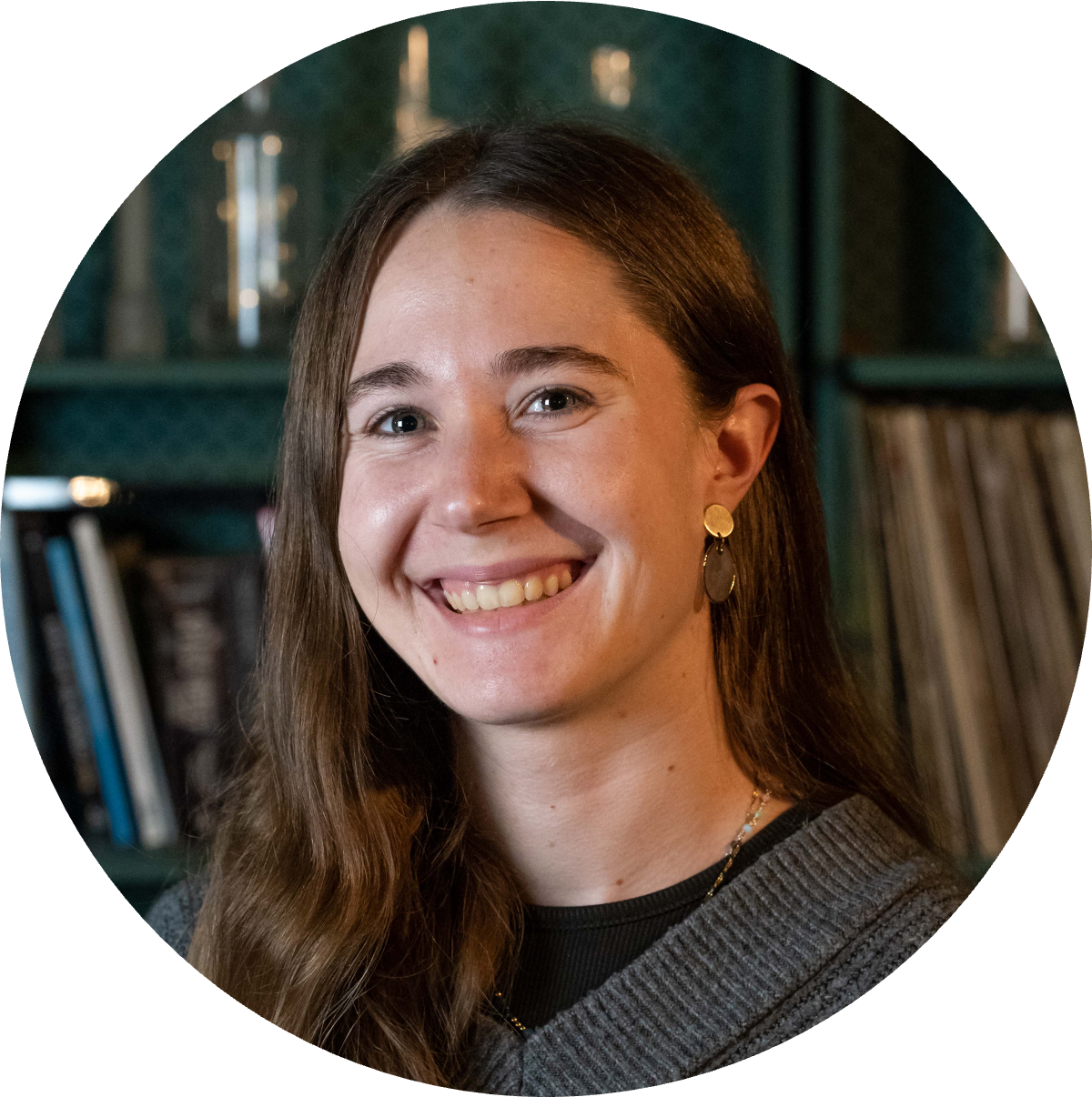
DC6 Àngela Natividad i mateu
Host institution: UVEG, Spain
Project title: The contribution of miRNome alterations to DM1: beyond the Muscleblind sequestration model (WP1)
Research interests and background:
After completing my studies in Biotechnology, which provided me with a strong background in molecular biology, genetic engineering, omics technologies, and bioinformatics tools, I decided to pursue a master’s in Molecular Biomedicine to deepen my understanding of diseases at the molecular level. This interest has always been the main driver behind my scientific career, focused on discovering the mechanisms underlying human diseases, with a particular emphasis on RNA biology, RNA-based therapeutics, and neuroscience. I am highly motivated by the idea of applying my knowledge of molecular processes to generate insights that may ultimately benefit society. In addition, other fields such as bioinformatics play an important role in complementing and enriching my research, serving as key tools in my scientific training.
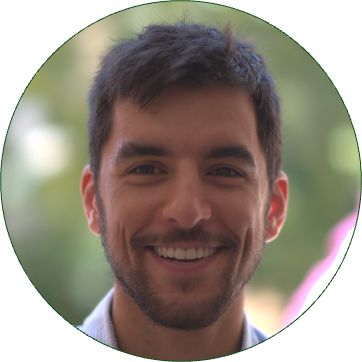
DC7 ANTON Simões
Host institution: RUMC, Netherlands
Project title: Rescuing disrupted single-cell and neural network activities in human DM neural models using ASO (WP2)
Research interests and background:
I am fascinated by neurobiology, especially how neurons give rise to complex human abilities like reasoning, memory, and consciousness on a molecular level. Understanding these processes not only deepens our knowledge of the brain but also opens avenues for treating neurological disorders. In my previous work, I developed a protocol for differentiating human induced pluripotent stem cells (hiPSCs) into mature, synapse-rich neurons. I have used these iNeurons to study synaptic dysfunction related to Alzheimer’s disease, highlighting their potential for modeling human neurological conditions. For my PhD, I am looking forward to employ patient-derived neuronal models to further shed light on the neuronal phenotype of myotonic dystrophy type 1 (DM1). As well as to discover potential treatments using antisense oligonucleotides (ASOs).
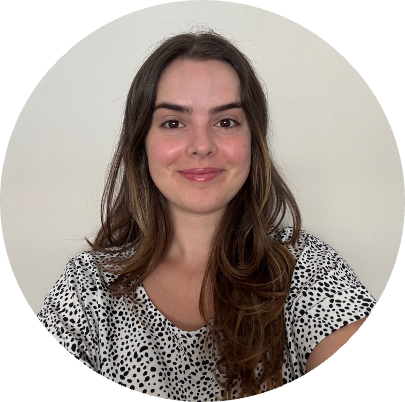
DC8 mireia gromaz
Host institution: AMU, Poland
Project title: Therapeutical potential of ASO inducing skipping of CUGexp-containing exon in myotonic dystrophy (WP2)
Research interests and background:
I hold a Bachelor's degree in Biotechnology from Universidad Católica de Valencia and a Master's degree in Molecular, Cellular and Genetic Biology from the University of Valencia. My academic background has focused on biomedical research, particularly RNA-based diseases. During my thesis, I explored the molecular mechanisms of myotonic dystrophy type 1, which led me to develop a strong interest in RNA therapeutics and gene expression regulation. I’m excited to join the ENTRY-DM network and contribute to translational research in this field.
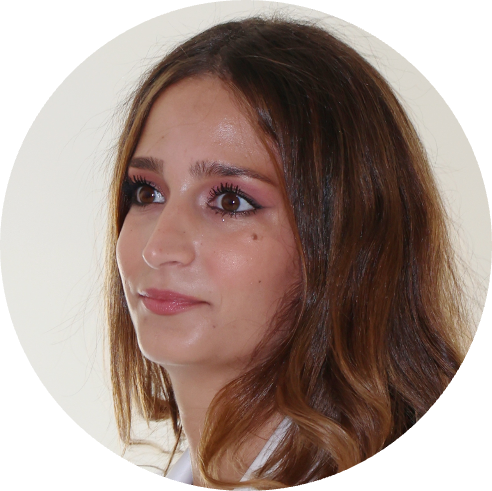
DC9 yasmine FERCHICHI
Host institution: UVEG Spain
Project title: Enhancing the activity of therapeutic ASO by genetic modulation and sequence motif adjuvants (WP2)
Research interests and background:
I am a biologist with a degree in Applied Biology for Biomedical Research, and I have developed a strong passion for biomedical applications through a variety of research experiences. My roots span multiple continents, which has given me a versatile and culturally rich perspective—something I bring into my scientific work.
Before joining the ENTRY-DM network, I worked in preventive and translational medicine, then moved into the field of cell-inspired microrobotics at the BioRobotics Institute. These diverse paths have led me here, where I hope to contribute meaningfully to scientific innovation and, most importantly, to leave a tangible and lasting impact—especially for future generations. And if I manage to change the world before my coffee gets cold, even better!
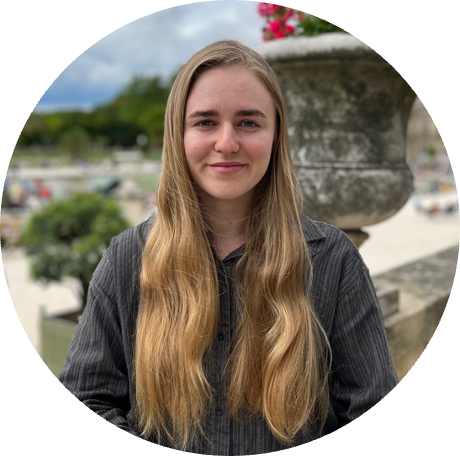
DC10 valeriia gorbunova
Host institution: CSIC, Spain
Project title: Novel ASO molecules for the therapy of DM1 (WP2)
Research interests and background:
My research interests lie in exploring repeat expansion disorders, particularly Myotonic Dystrophy, by integrating my background in organic chemistry, biology, and bioinformatics. I obtained a Bachelor's degree in Biotechnology, where I focused on the synthesis of novel biologically active compounds. Then, I pursued a Double Master’s Degree in Molecular Biology (Italy) and Genetics (France). During my studies in Paris, I conducted research at the Research Centre of Myology, investigating the role of CCG interruptions within CTG triplet expansions in DM1.

DC11 VASILINA GAVRA
Host institution: INSERM, FRANCE
Project title: Development of circulating muscle-specific biomarkers (WP3)
Research interests and background:
I hold a BSc in Chemistry and an MSc in Neurosciences from the University of Crete in Greece. My academic and professional background has centered on biomedical and translational research—particularly in neurodegeneration and protein aggregation—where I have used cellular and molecular biology approaches to explore disease mechanisms.
Joining the ENTRY-DM network marks an exciting new chapter for me, as I step into a new research field—that of repeat expansion disorders, specifically myotonic dystrophy type 1 (DM1). My project will focus on the discovery of muscle-specific circulating biomarkers for DM1, with the aim of improving disease diagnosis, monitoring, and treatment.
During my PhD, I am especially looking forward to developing new skills in bioinformatics and omics analysis, and to collaborating across disciplines to contribute to what I find most meaningful: patient-oriented research with real clinical impact.
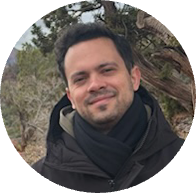
DC12 PANAGIOTiS STREVINAS
Host institution: INSERM, France
Project title: Circulating biomarkers of brain dysfunction in DM1 (WP3)
Research interests and background:
I hold a BSc degree in Biology from the University of Athens and an MSc in Biosciences (Drug Innovation) from Utrecht University. My undergraduate research focused on cytoskeletal protein function in plant development, however, my work in COVID-19 molecular diagnostics during the pandemic shifted my interest towards translational research. During my MSc, I conducted two research internships that shaped my current focus. At the Experimental Pharmacology group at Utrecht University, I investigated neuroinflammation and Blood-Brain Barrier disruption in a mouse model of kidney injury, to elucidate CNS complications in Chronic Kidney Disease. At Roche pRED, I developed spatial transcriptomics workflows to characterize AAV-PHP.eB-associated molecular signatures in the mouse brain, supporting efficacy and safety assessment of gene therapy candidates. I am very excited to participate in ENTRY-DM, where I aim to explore the molecular mechanisms of brain dysfunction in DM1, discover clinically relevant circulating biomarkers, and inform therapeutic development.
Beyond science, I am passionate about financial markets and the intersection between biotechnology, innovation, and investments. I also enjoy photography, drawing, and reading.
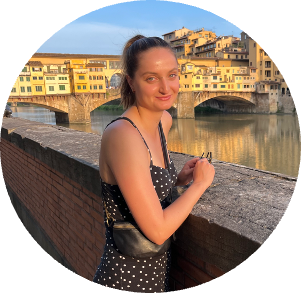
DC13 MALIN LARSEN
Host institution: LMU, Germany
Project title: Myotonic Dystrophy Type 2 (DM2): Biomarker discovery and correlation to clinical outcomes (WP3)
Research interests and background:
Hi, my name is Malin. I grew up in Germany before moving to Scotland for university. I spent 5 years in Glasgow, studying a BSc in Genetics and then a MSc in Medical Genetics and Genomics. Understanding the genetics underlying different traits and diseases has always fascinated me. I did my undergraduate project on the use of ONT sequencing for Fuchs Endothelial Corneal Dystrophy, a trinucleotide repeat disorder, which started my interest in genomics and TNRs specifically. For my masters, I went in a different direction and investigated the role of dietary sugars in aging using Drosophila melanogaster as a model organism. Apart from science, playing basketball has been a huge part of my life and I also enjoy cooking, reading and hiking.

DC14 maria carolina fontana antunes
Host institution: UPC, France
Project title: Participation in clinical trials: the contribution of decision-making cognition in patients with DM1 (WP3)
Research interests and background:
I am a Clinical Neuropsychologist with over ten years of experience working in the field of neurodegenerative and rare diseases. I obtained my Bachelor's degree in Psychology from São Paulo State University (UNESP) and my Master’s degree in Neuroscience from the University of São Paulo (USP). I also completed my Training in Clinical Research at Harvard T.H. Chan School of Public Health, where I currently serve as a Teaching Assistant. Throughout my career, I have worked across clinical practice, teaching, and international research collaborations in both academic and industry settings. At Université Paris Cité, through the ENTRY-DM project, my research will explore how cognitive, emotional, and genetic factors influence decision-making in individuals with Myotonic Dystrophy Type 1, particularly in the context of clinical trials. I am committed to advancing our understanding of rare diseases and contributing to the development of strategies that promote patient engagement and improve quality of life.














